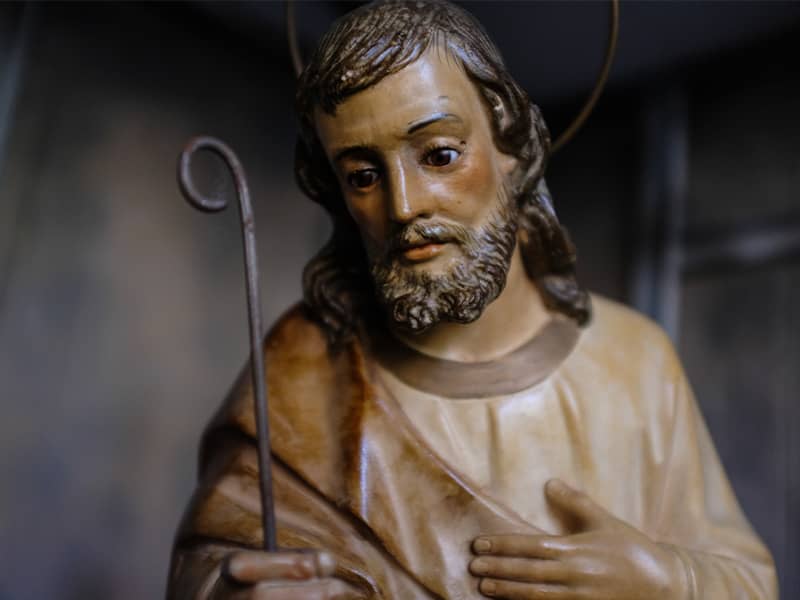Those words, from "Murder in the Cathedral," match the sense that this year challenges some central American longings. We love mysteries but also want them solved immediately. The idea that some mysteries cannot be solved, that they are forever beyond us, is disquieting. We protect ourselves against mystery by donning earphones, passing through museums more like drone planes than art lovers, never allowing the paintings to speak directly to, and possibly disturb, our own depths.
Our intolerance for mystery makes us obsessed with "closure," with capping our experiences the way Americans cap burning oil wells, terminating the flaming overflow of such mysteries as death and loss. Some say that we need closure on the thousands of deaths we have seen this year, or otherwise their meaning may forever elude us and our mourning never be done.
These frustrated and frustrating longings are aspects of a larger engulfing drama of human experience in which we all have speaking parts. We suffer together the suffering world, that "stained glass," as the poet put it, "on the white radiance of existence."
We continue to witness this ongoing mystery that will not be solved even when its planners and perpetrators have been apprehended, found guilty and punished. That is the easy part of this mystery that is the "sacramentum mundi," the sacrament of our world, the symbol reflecting the image of the world back to it and to us.
"Myth," as most of us understand, does not mean a false notion but rather events that symbolize basic and abiding human truths in ways, such as stories, that make them immune to the superficial changes wrought by time and chance.
The attacks of Sept. 11 constitute, before our eyes and in our hearts, a mythical event in a myth-starved era, a tragic yet mystical orchestration of human experience that we enter, without explanation, solution or hope of closure, to discover and recognize the mystery of being.
Christmas is a mythical event whose story will outlast time's variations and history's vandals. It will even survive the American Civil Liberties Union because it tells us our story, the great human story we recall at the peak of every year.
God once looked at his creation and found that it was good. But Christmas tells us that he entered the world as it is -- our world, the same imperfect, pain-, injustice- and sin-filled world that lies about us, this vast, tragic wonder of love and goodness ever terrorized by loss and death.
The trinity of the Sept. 11 attacks reveal, as nothing has since the Holocaust, the world as it is -- this mystery we can never solve, the pain and sorrow from which we are never free, and the love that thrives on this imperfection.
9/11 symbolizes the religious mystery of our being. How unlike an angelic choir we are. In this mythical event we find everything that has ever happened in human history, every language spoken, every emotion of the heart, every age group, every degree of education, every state of health, every longing and every hurt, every dream and every delusion, every hope and every kind of plan, the timid and the brave, yes, and, above all and in everyone, sparks enough of love and self-forgetfulness to redeem it all -- in James Joyce's words, "Here Comes Everybody."
As the next of kin, we cannot ignore this mystery. How could we miss the family resemblance and fail to recognize the Christmas religious mystery we can never solve -- of our lives as we are in the world as it is?

